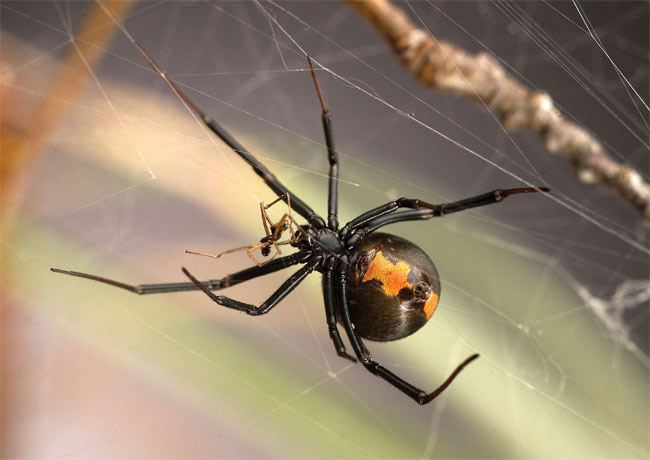Fear of Spiders Can Develop Before Birth

Scientists figure humans may be born with a fear of spiders and snakes, healthy phobias that up the odds of survival in the wild. It's not known how such an inborn fear might develop, however.
Now researchers have proven that unborn crickets can gain a fear of spiders based on their mother's harrowing experiences.
Scientists put pregnant crickets into terrariums containing a wolf spider. The spiders' fangs were covered with wax so the spiders could stalk but not kill the pregnant crickets. After the crickets laid their eggs, the researchers compared the behavior of the offspring with offspring whose mothers hadn't been exposed to spiders.
The differences were dramatic, the scientists said.
The newborn crickets whose mothers had been exposed to a spider were 113 percent more likely to seek shelter and stay there. They were also more likely to freeze when they encountered spider silk or feces — a behavior that could prevent them from being detected by a nearby spider. Overall, these newborns had better survival rates than other newborn crickets, eaten by the wolf spiders for the sake of science.
In humans, research also suggests the widespread fear of spiders and snakes (arachnophobia and ophidiophobia, respectively) may be innate. A study in 2008 found that both adults and children could detect images of snakes or spiders among a variety of non-threatening objects more quickly than they could pinpoint frogs, flowers or caterpillars. One researcher, anthropologist Lynn Isbell of the University of California, Davis, thinks our fear of snakes goes way, way back. She figures snakes were the first predators of early primates and contributed to the evolution of relatively good vision — useful for spotting snakes — that we enjoy today.
The results of the cricket test suggest that "the transfer of information from mother to offspring about predation risk, in the absence of any parental care, may be more common than one might think," said Jonathan Storm of the University of South Carolina Upstate in Spartanburg.
Get the world’s most fascinating discoveries delivered straight to your inbox.
Pregnant crickets from the wild, including some from habitats where wolf spiders are common and others from places where spiders are scarce, confirmed the effect is not limited to lab situations. Storm and colleague Steven Lima of Indiana State University detail their results in the American Naturalist.
Scientists aren't sure how the fear is passed down, but they speculate that stressful events like predator attacks trigger the release of a hormone in the mother that influences the development of the embryo.
- Top 10 Phobias: Fear of Spiders, Snakes and More
- Creepy Cannibalism: Why Female Spiders Eat Mates
- Gallery: Creepy Spiders



